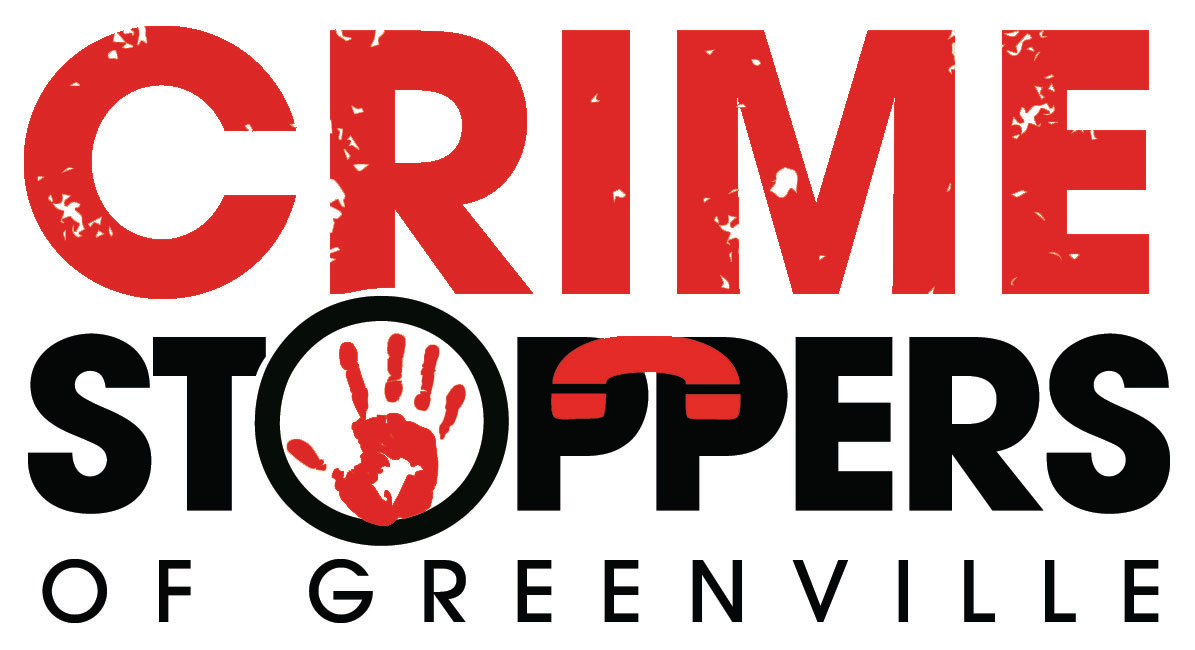How it Works
Make a call to Crime Stoppers of Greenville at 23-CRIME (232-7463) with ANY information you have in reference to a case or incident. You can call 24-hours a day, seven days a week. Or you can use the anonymous tips link on this web site.
-
We will never ask for your name.
-
We will not record your call.
-
We do not trace phone numbers or tips submitted online.
-
You will not have to make a statement to police.
-
You will not have to appear in court.
The operator taking your call will need as much information as possible about the crime or specific details about a suspect(s). Be prepared to provide as much information as you can about the suspect’s name, description, address, incident location, where the suspect currently is, and so forth.
The Crime Stoppers operator will give you a unique code number to identify your tip, write this number down, this number is the only way to get paid if your tip is successful. If using the anonymous web tips on this web site, you will receive a unique tip number when you submit your tip; again keep this number, this is how you get paid.
How do you get paid? Check back with the Crime Stoppers tip-line after a few weeks to see if your tip was successful; just give the Crime Stoppers operator your code number and ask if the number has been approved for a reward. If it has been approved, the operator will give you instructions on how to collect any rewards that have been approved.
Important things to remember about collecting a reward:
Crime Stoppers pays rewards of up to $2,000
Crime Stoppers pays for information that leads to an arrest, the recovery of stolen property, or the seizure of illegal drugs. Crime Stoppers does not wait for a case to go to court before considering a reward.
You do not have to give your name and you will not have to talk to a police officer in order to be eligible for a reward
To be eligible for a reward from Crime Stoppers, tips must come through the Crime Stoppers tip line or the Crime Stoppers anonymous email

The Online WebTip
Tipsters now have the option of giving us tips online. The process is completely secure and anonymous and is a very effective and efficient means of safely communicating with us in today's world. Our WebTip process is powered by the world's leading online tip solution provider, Anderson Software.
The very unique integrated Two-Way Dialog capabilities allow the tipster to come back and provide additional information to their tip at any time, but also provides a secure means for the coordinator to ask questions or provide reward information back to the tipster through the same secure and encrypted interface.
Structure and Funding of Crime Stoppers
Crime Stoppers of Greenville is a not for profit organization (Charity). A civilian community board of directors provides direction as to the financial and promotional activities of the program. The board of directors enhances the community involvement aspect, and its function is vital to the programs success.
The Crime Stoppers program is funded by private donations and fund raising. The reward money paid out by the program is from the fund raising and donations from concerned citizens and businesses.
A community board of directors, made up of persons from throughout the area, meets on a monthly basis to evaluate arrests and to decide on the size of rewards to be paid, up to $2,000. Rewards are then distributed in a private manner to the callers. Callers are eligible for rewards up to $2,000. but, despite this, many callers choose not to collect their rewards.
Does Crime Stoppers Work?
The answer is quite simply yes. Since the start of Crime Stoppers, many calls have been received resulting in thousands of arrests and recovery of substantial amounts of property. Calls have included information about murder, robbery, rape, assaults, drug and firearm offenses.
The success of a Crime Stoppers program cannot be purely judged on statistics, however, other benefits have come to notice:
-
A greater awareness in the community that there is a crime problem.
-
A willingness by the community to fight back against crime if it is given the opportunity and motivation.
-
Improved relationships between police, media, and the community.
